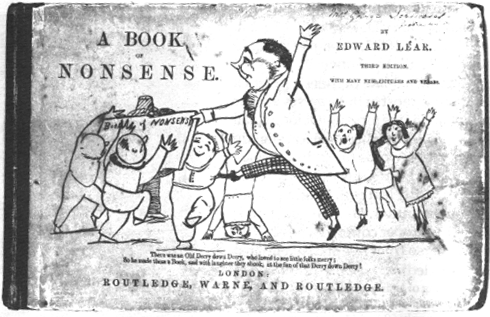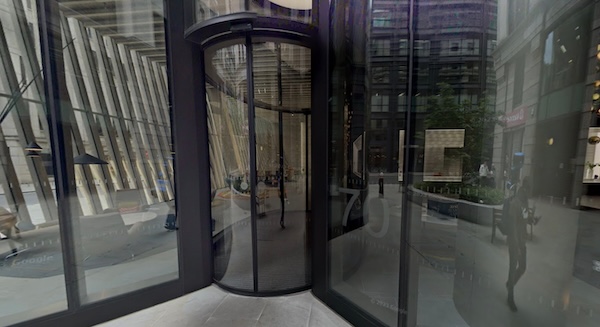Off-beat poetics
Thursday, February 29, 2024
Comments: 7 (latest 11 hours later)
Tagged: limericks, burma shave, poetry, road trips
"The English language only has one native poetic form, and that's the limerick," someone once told me. I don't remember who.
Well, no. What I remember hearing is "the limerick is America's only home-grown verse form," but that's just silly. I don't know how that even stuck in my head. It doesn't even rhyme!
Limericks are from England, if they're not from Ireland. (The city of Limerick may or may not have anything to do with the case.) Edward Lear was British. W. S. Gilbert was British. Ogden Nash was American but he came along later. I don't know anything about the Maigue Poets of Croom, but I am fantastically happy that "the Maigue Poets of Croom" is a thing people talk about.
No, the only truly American verse form is the Burma-Shave sign.
Ben met Anna Made a hit Neglected beard Ben-Anna split Burma-Shave
That's the one I remember, from some history of nonsense I read as a kid. Long after Burma-Shave, honest. The last original sign went up in 1963, so I would have read about them... all of fifteen years later? Maybe twenty?
But what is the poetic form of the Burma-Shave sign? A few years ago I was inspired to write it thusly:
Four short lines Iambic pace It's like haiku But for your face Burma-Shave
Credit me on that one if you quote it, please. I am proud.
Only that's wrong! A Burma-Shave poem is five lines, not counting the final "Burma-Shave" logo. I realized this while hunting down the exact wording of "Ben-Anna Split" at this Burma-Shave fan site:
Ben Met Anna Made a hit Neglected beard Ben-Anna split Burma-Shave
Or check this page, which reproduces the entire collection from Frank Rowsome Jr.'s definitive book The Verse by the Side of the Road.
How did I get that wrong? Obviously, my memory is oral tradition. If you recite the poem, it's four lines. It's just written in five. One line is always broken up. Doesn't have to be the first line; it just has to fit the rhythm.
Shaving brush Is out of date Use the Razor's Perfect mate Burma-Shave
Once you see it, the off-kilter phrasing jumps out; it's crucial. If you write "Ben-Anna" in four lines, like I did above, it's lifeless tump-tump.
Of course, the signs weren't perfectly consistent. It took the company a couple of years to really settle the formula. The first one (1927) was just an ad:
Shave the modern way No brush No lather No rub-in Big tube 35¢ drug stores Burma-Shave
(If you really want to be pedantic, the verse form must be written in all capital letters. I'm not saying typography can't be integral to a literary form -- just last night I saw a printout in Computer Modern and said "Ah, nerd document" -- but for this post I'll leave it be.)
By 1929 the company had gotten into poems. But they sometimes tried to connect up the "Burma-Shave" line at the end:
Every shaver Now can snore Six more minutes Than before By using Burma-Shave
Awkward, right? But 1929 also saw what feels like the first "correct" jingle.
Half a pound For Half a dollar Spread on thin Above the collar Burma-Shave
Burma-Shave never stayed entirely in one lane, but by 1932 the majority of jingles used the four-lines-five-signs format. Although I have to quote this masterpiece, which unifies the final line without losing the prosody:
If harmony Is what You crave Then get A tuba Burma-Shave
I have accordingly updated my Burma-Shave definition page to five-line form. I can't believe I got it so wrong.
Five short lines Iambic pace It's like Haiku But for your face Burma-Shave
And that brings us back to limericks, the only true five-line verse form.
(No, not really. I can google "cinquain" as well as anybody. It's a segue; go with it.)
The one thing absolutely everybody knows about limericks is that they're five lines long. Only that's wrong! Edward Lear didn't write them that way. (He didn't call them "limericks" either; the term came later.)
There was a young lady of Harwich Who built a remarkable carriage; It held just one hundred -- so everyone wondered -- And cried ‘Gracious me! What a carriage!’
There was an Old Person of Philæ Whose conduct was scroobius and wily; He rushed up a Palm, when the weather was calm, And observed all the ruins of Philæ.
In fact this 1861 edition of A Book of Nonsense stuffs a limerick into two lines on the title page.

There was an Old Derry down Derry, who loved to see little folks merry; So he made them a book, and with laughter they shook, at the fun of that Derry down Derry!
Nobody was thinking about five-line verses at all in those early Lear collections.
If you recite a limerick, it's... is it four lines or five? This isn't obvious! Let's go back to W. S. Gilbert:
My name is John Wellington Wells, I’m a dealer in magic and spells, In blessings and curses And ever-filled purses, In prophecies, witches, and knells.
If any one anything lacks, He’ll find it all ready in stacks, If he’ll only look in On the resident Djinn, Number seventy, Simmery Axe!
 Number 70, Simmery Axe, courtesy of Google Street View. I hope they have a plaque or something about the song.
Number 70, Simmery Axe, courtesy of Google Street View. I hope they have a plaque or something about the song.
The chorus of the song is two limericks. I don't think I ever noticed this, despite having the song stuck in my head all last week.
(I just read The Portable Door by Tom Holt, entirely by coincidence, I had no idea Burma-Shave research would lead me down this hole. The book involves the descendants of J. W. Wells, you see. Thus the earworm. The book was okay, but I like his K. J. Parker stuff better. If you want more Wells, check out The Incredible Umbrella by Marvin Kaye.)
Where was I? Limericks. Of course the song isn't written in 5/4 time or anything. You sing it in four evenly-spaced lines, with a solid beat of silence at the end of three of them.
My name is John Wellington Wells (boom) I’m a dealer in magic and spells (boom) In blessings and curses and ever-filled purses, In prophecies, witches, and knells. (boom)
And that's how you recite a limerick, right?
There was a young lady named Bright (boom) Who travelled much faster than light (boom) She set out one day In a relative way And returned on the previous night. (boom)
Whether the third line is broken up on paper, it flows rat-a-tat in prosody. You only have time for the barest fraction of a pause. Whereas the first two pauses are thunderous, and the last one --
Does it even make sense to talk about a pause on the last line? You've finished the poem! But there is a pause there, and it's intrinsic to the limerick form. That's the beat where the audience gets it. Boom! This is why limericks are comic verse. They have perfect comic timing built right in; you can't screw it up.
Note that Edward Lear's verses don't do this. Lear very distinctively ends his last line by repeating the first, rather than rhyming with it. The comedy comes in the third (/fourth) line, which goes nonsensically off the rails, allowing the final line to bring you comfortingly back to earth.
There was an Old Person of Anerly, Whose conduct was strange and unmannerly; He rushed down the Strand, with a Pig in each hand, But returned in the evening to Anerly.
If I knew why Lear thought this was best, I should know a great deal more about nonsense than I do.
Comments from Mastodon
@zarfeblong I think this example by Edward Gorey illustrates pretty well how the limerick is mostly an English form:
Un moine au milieu de la messe
S'eleva et cria en detresse:
'La vie religieuse,
C'est sale et affreuse'
Et se poignarda dans les fesses.
Plays by the rules, great punchline, but it just doesn't ring the same without the falling-to-a-stop tune of our degenerate tongue.
@bathsheba I never stumbled across Gorey doing French limericks! I am too much of a filthy monolinguist to get it, but I can believe the idea never took off.
@zarfeblong Are you familiar with the Beastie Boys song, "The Negotiation Limerick File"? The best, and possibly the only, use of the limerick form in rap music.


@zarfeblong If you're feeling like a jerk
'cause your project doesn't work,
Go ahead and take the leap;
Then you'll finally get some sleep.
Burma-Shave